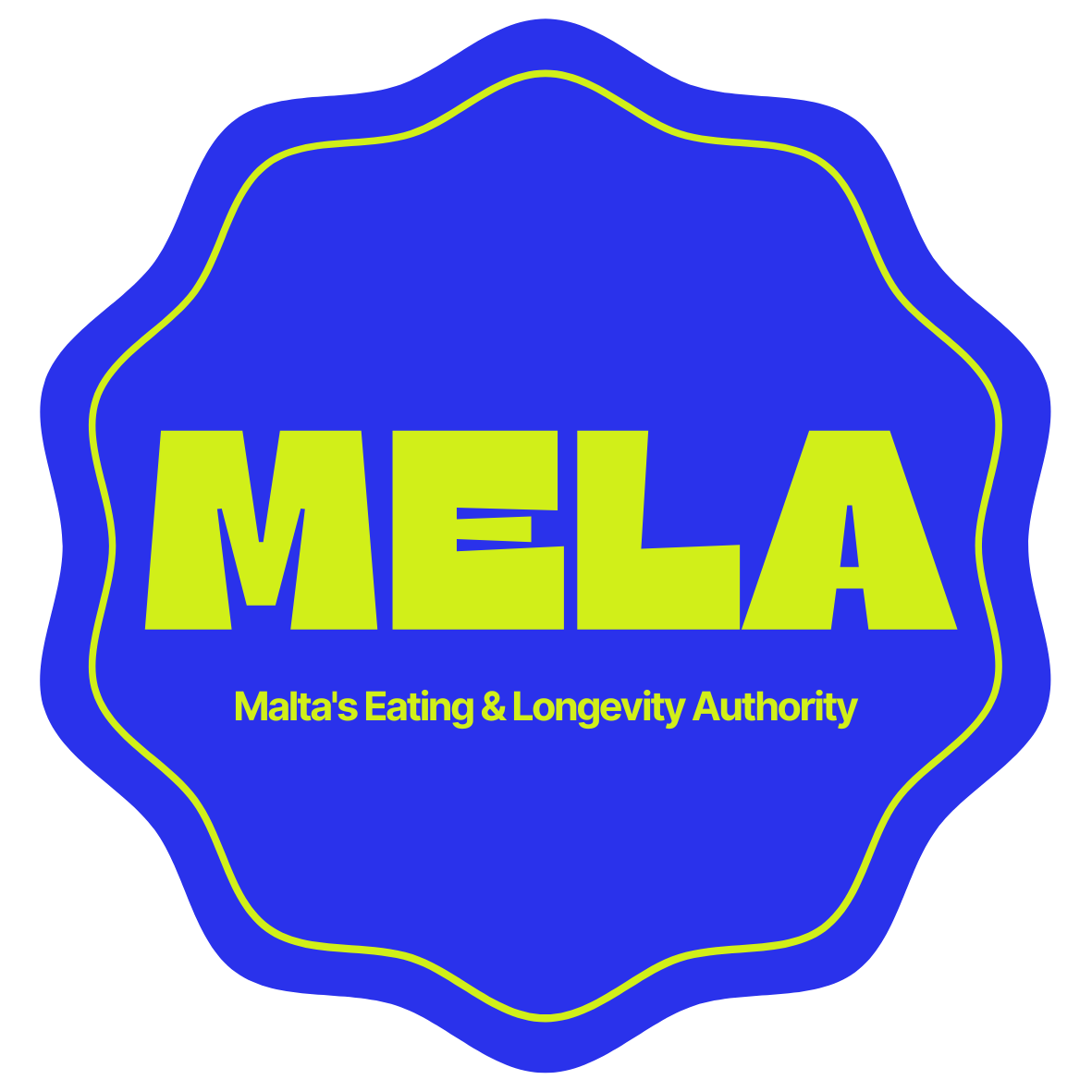Shocking revelation: Malta’s booming tourism industry is pushing its coastal areas, like Surfside, to the brink of environmental collapse, yet it holds the blueprint for a sustainable future. In 2026, Surfside Malta isn’t just another beach destination; it’s becoming a prototype for integrating economy, environmental preservation, and community well-being into one cohesive experience. But here’s the catch, it faces seasonality strains, skyrocketing tourism density, and environmental degradation that demand immediate solutions.
In this article, we’ll explore Surfside Malta’s significance in Malta’s tourism framework, the challenges it faces, and the actionable sustainability measures that could make it a global role model for green travel. Locals and eco-conscious tourists alike will benefit from these insights, whether you care about carbon footprints or simply want a better quality coastal experience.
The Surfside Malta Story: Why It Matters
Located along Malta’s stunning coastline, Surfside Malta represents a unique intersection of leisure and environmental conservation. It’s part of the nation’s sustainable tourism development plan, which, as noted in a 2026 OECD report, tracks 37 core indicators to optimize tourism’s economic and cultural contributions.
Despite contributing significantly to Malta’s GDP, Surfside faces challenges like overcrowding, seasonal fluxes, pressure on freshwater resources, and increasing waste output. With tourism density metrics showing strain on local infrastructure and community, its future hinges on sustainable practices.
.png)
Key Challenges Surfside Malta Faces
1. Tourism Density and Seasonality
While Surfside Malta thrives during peak tourist seasons, occupancy rates drop dramatically in off-peak months. This imbalance stresses local infrastructure during busy periods and reduces economic stability year-round.
2. Environmental Pressure
Current data reveals alarming trends:
- Electricity Usage: Coastal resorts like Surfside consume disproportionate amounts, with peaks during summer months.
- Freshwater Shortages: 2026 reports highlight that freshwater demands in tourist-heavy zones exceed sustainable thresholds.
- Waste Output: Coastal waste production spiked by over 32% due to increased visitors.
3. Carbon Footprint of Beach Resorts
Carbon emissions from resorts, transport, and operations show the urgency for cleaner energy solutions, like solar installations and zero-emissions travel options.
Sustainable Solutions: How Surfside Malta Can Lead the Way
Shocking statistic: By implementing green practices, Surfside Malta could cut its environmental impact by 50% within a decade, experts estimate. Here’s how:
Optimize Visitor Flows
- Smart Occupancy Management: Tools like AI predictive models (similar to platforms featured on Fe/male Switch) can balance high-peak and low-peak periods.
Environmental Measures
- Renewable Energy Use: Transitioning to solar-powered resorts and energy-efficient appliances.
- Water Recycling: Greywater systems for resort operations could reduce freshwater consumption by 34%.
- Waste Management Programs: Introducing extensive recycling initiatives and composting facilities in tourist zones.
.png)
Cultural and Local Initiatives
- Support local food networks to cut reliance on imported goods.
- Use green area preservation strategies to balance tourism with biodiversity conservation.
Learn more about green tourism in Malta here
Resident Concerns: How Locals Are Reacting
A growing number of Malta’s residents are vocal about concerns surrounding tourism density, especially in Surfside areas. Surveys conducted as part of Malta’s policy prioritization found mixed reactions:
- Some welcome the economic contributions.
- Others cite overcrowding and local heritage damage.
Seasonal Strategies for Tourism Optimization
Sustainable tourism isn’t just about cutting down carbon footprints, it’s about embracing the seasonal dynamics that drive Surfside Malta’s economy.
Spring (March-May): Eco-Friendly Wellness Destination
Promote Surfside Malta for wellness-focused tourists seeking spa retreats and low-impact excursions during this quieter season.
Summer (June-August): High-Efficiency Management
Manage peak rates with AI tools. Cap visitor numbers to reduce overcrowding.
Autumn (September-November): Focus on Preservation
Introduce locals-only events and initiatives to reconnect residents with the spaces affected by peak tourism.
Winter (December-February): Green Rebranding
Shift focus to eco-conscious winter holiday marketing, showcasing low-energy resorts and culturally immersive experiences.
Data Insights: Surfside’s Green Potential
| Sustainability Indicators | Current Figures | Target Reduction Goals |
|---|---|---|
| Carbon Footprint | High (45,000 metric tons annually) | Reduce by 50% via clean energy transition. |
| Freshwater Consumption | 18Ml/day in peak season | Reduce by 25% through recycling initiatives. |
| Waste Production | 32% above average | Cut excess by recycling and local waste management systems. |
Shocking fact: Local food initiatives integrated at Surfside could reduce import dependency by 60%, benefiting both the economy and environment.
Practical Tips: What You Should Know Before Visiting Surfside
Healthy dining, conscious traveling, and reducing your tourism footprint are all possible in Surfside.
1. Choose Local Dining
Support eateries that prioritize farm-to-table operations. Check out top restaurants in Mellieha.
2. Watch Water Consumption
Avoid unnecessary showers or taps running, contribute to sustainable water usage.
3. Travel Smart
Opt for eco-friendly modes of transportation, like electric taxis or biking.
4. Reduce Beach Waste
Carry reusable items like bottles and utensils to avoid littering the area.
Discover sustainable travel insights in Malta
The Future of Surfside Malta: Technology and Sustainability
The consensus among policymakers and tourism experts is clear: technologies like AI and blockchain, as seen in Fe/male Switch, hold transformative potential for Surfside’s sustainable future.
Key Predictions for 2030:
- AI-powered tourism management reducing infrastructure strain.
- 50% green energy adoption within Surfside resort operations.
- Resident-focused programs fostering better community-tourist relations.

Read more: Malta’s journey toward eco-friendly policies
Overcoming the Challenges Together
Surfside Malta stands at the crossroads of tourism and sustainability, it must choose wisely. Locals, policymakers, and tourists all have roles to play in making this vision a reality. Whether it’s supporting eco-conscious resorts, embracing local food, or adopting green travel habits, every effort contributes to Surfside’s brighter future.
Ready to rethink your travel plans and support Surfside Malta’s transformation? Dive into Malta’s sustainable initiatives here.
![MELA AI]
![MELA AI]
![MELA AI]
Let’s make Surfside Malta the global blueprint for responsible tourism. Together, we make waves that matter.
Conclusion
Surfside Malta isn’t just a hotspot for coastal getaways; it’s a dynamic case study in sustainable tourism that other destinations around the world should emulate. By balancing visitor experiences with ecological preservation, Malta is proving that even small island nations can tackle global challenges like climate change and over-tourism. The data tells an urgent yet hopeful story, from optimizing freshwater use to reducing carbon footprints, Surfside Malta is pausing, reflecting, and innovating in ways that could secure its future both as a travel destination and a resilient community.
Crucial to this success will be the collective effort of policymakers, residents, and tourists. By adopting greener habits, supporting local initiatives, and embracing innovative technologies, we can all contribute to a more sustainable travel ecosystem. Whether you’re strolling along the shoreline, enjoying farm-to-table delicacies, or taking part in waste-free tourism activities, Surfside invites every visitor to leave a positive impact rather than just footprints.
For those ready to champion Malta’s commitment to healthier, greener living, platforms like MELA AI are leading the charge. By spotlighting restaurants in Malta and Gozo that prioritize healthy, sustainable cuisines, MELA AI transforms dining into an impactful act of conscious decision-making. With its MELA sticker, the platform recognizes the restaurants that are making significant strides in promoting nutrition and wellness, ensuring your choices contribute to your health and the environment.
Explore Surfside Malta and experience the transformation of travel. And when you’re done soaking up the sun, make your next dining stop one that feeds more than your taste buds, check out MELA-approved restaurants that align with your values and elevate your experience. Together, we can make Surfside Malta a symbol of sustainable progress, one wave and one meal at a time.
FAQ on Sustainable Tourism and Surfside Malta
Why is Surfside Malta considered a model for sustainable tourism?
Surfside Malta exemplifies sustainable tourism, integrating environmental conservation with economic development and community well-being. Located along Malta’s coastline, it uses the nation’s sustainable tourism framework, incorporating 37 core indicators such as carbon footprint, water consumption, and local food integration. Surfside is critical because it balances tourist demands with preserving biodiversity, cultural heritage, and community health, all while contributing to Malta’s GDP. Despite challenges like overcrowding, freshwater shortages, and waste overproduction, Surfside Malta demonstrates potential through green energy adoption, water recycling initiatives, and AI-based smart occupancy tools. Addressing these factors could reduce environmental impacts by up to 50% in the coming decade, cementing its role as a global leader in responsible tourism.
How has Surfside Malta’s tourism density impacted locals and infrastructure?
Tourism density, particularly during peak seasons, has strained Surfside Malta’s local infrastructure and diminished residents’ quality of life. High visitor numbers exert pressure on water resources, road systems, and waste management, while overcrowded beaches disrupt daily living for locals. Some residents appreciate tourism’s economic contributions, but surveys reveal rising concerns about cultural heritage damage and environmental degradation. Many locals advocate for visitor caps and community-focused programs, such as “locals-only” initiatives in off-peak seasons. By balancing tourism flows through SMART tools and conserving green areas, Surfside Malta can better mitigate this issue and foster harmony between visitors and residents.
What sustainable practices can tourists adopt when visiting Surfside Malta?
Tourists can take simple, effective steps to minimize their environmental impact at Surfside Malta. Opt for eco-friendly transportation, including biking or electric scooters, and stay at accommodations powered by renewable energy. Select dining options that support the local food network, an integral part of Malta’s green strategy, which reduces imported goods’ dependency by 60%. Avoid single-use plastics, bring reusable items like water bottles and utensils, and support local businesses emphasizing preservation and sustainability. By contributing to these practices, visitors help Surfside become a prototype for eco-conscious destinations worldwide.
How does MELA AI support sustainable tourism in Malta?
MELA AI specializes in promoting healthy dining and supporting sustainable tourism initiatives in Malta and Gozo. The platform awards the prestigious MELA sticker to restaurants prioritizing healthy, locally sourced meals, aligning perfectly with Malta’s sustainability goals. Through its MELA Index, diners can identify restaurants excelling in eco-friendly practices and community engagement. By incentivizing sustainable dining, MELA AI indirectly reduces waste and imported goods dependency, turning restaurants into active participants in Malta’s eco-friendly tourism strategy. Visitors to Surfside can use MELA AI to explore health-conscious dining options, ensuring their journey is both enjoyable and environmentally responsible.
Is Surfside Malta integrating technology to enhance sustainability?
Yes, Surfside Malta is increasingly relying on cutting-edge technologies like AI and blockchain to optimize sustainability. AI predictive models balance peak and off-peak tourist seasons, reducing overcrowding and infrastructure strain. Solar energy installations and smart water recycling systems have been prioritized to address electricity consumption and freshwater shortages. Platforms like Fe/male Switch showcase how AI technology can improve visitor management and carbon footprint tracking. By adopting these tools, Surfside Malta can set a benchmark for eco-friendly travel destinations worldwide.
How does tourism seasonality affect Surfside Malta?
Seasonality dramatically impacts Surfside Malta by creating imbalances in tourism flow. During peak months, infrastructure struggles with overcrowding, while off-peak periods bring economic instability due to low occupancy rates. To address this, solutions include seasonal diversifications, for example, promoting Surfside as a wellness or preserve-focused destination during quieter months. Platforms like MELA AI can enhance off-season performance by targeting locals and eco-conscious tourists eager for high-quality dining experiences. Balancing visitor flows by season ensures both economic resilience and environmental protection across Surfside’s coastal region.
What challenges does Surfside Malta face regarding freshwater?
Tourist-heavy zones like Surfside Malta strain Malta’s limited freshwater resources, especially during peak seasons when consumption exceeds sustainable thresholds. To combat this, resorts and local businesses are adopting greywater recycling systems, which could reduce fresh water usage by up to 34%. Individual tourists can contribute by limiting long showers and using refillable water bottles when visiting. Such community-level and individual efforts are essential to ensure Malta’s coastal locations maintain access to clean fresh water long-term.
Can Surfside Malta’s eco-approach influence local food options?
Absolutely! Surfside Malta’s push for sustainability aligns with efforts to integrate local food networks, a win for both biodiversity preservation and economic growth. Supporting locally-sourced ingredients cuts carbon emissions linked to imports and enhances meal freshness. Platforms like MELA AI spotlight restaurants championing farm-to-table practices, ensuring tourists enjoy sustainable dining options. Increased use of local food reduces Malta’s dependency on imported goods by 60%, helping community well-being and environmental conservation simultaneously.
How does Malta’s tourism framework track environmental indicators?
Malta’s tourism sustainability framework includes *37 core indicators, ranging from electricity consumption to waste output. Data from Surfside Malta reveals spikes in carbon emissions and waste during peak tourist periods, threatening coastal ecosystems and infrastructure. Advanced tracking tools like AI assist policymakers in addressing these trends, implementing solar energy systems, and optimizing waste management programs in high-density tourist zones. Public transparency on these metrics helps locals and visitors alike play active roles in achieving Malta’s tourism sustainability targets.
What are the benefits of MELA AI for health-conscious diners in Surfside Malta?
Using MELA AI, diners can discover eco-friendly restaurants in Surfside Malta that invest in health-conscious practices. MELA-approved eateries emphasize locally sourced, nutrient-dense meals certified by the renowned MELA sticker. Featuring a user-friendly directory, MELA helps tourists and locals alike find dining options that are not only healthier but also support Malta’s green initiatives. With three branding levels for restaurants, MELA AI ensures that venues integrate sustainability into their business model, resulting in better offerings for diners and a reduced impact on the environment.
This FAQ aims to cover the vital aspects of Surfside Malta’s efforts toward sustainable tourism and the supporting role of MELA AI for eco-conscious travelers. For more details on dining options related to sustainable tourism, visit Restaurants Malta.
Check out another article that you might like:
Mecca Gourmet: Redefining Malta’s Healthy Eating Scene in 2026
About the Author
Violetta Bonenkamp, also known as MeanCEO, is an experienced startup founder with an impressive educational background including an MBA and four other higher education degrees. She has over 20 years of work experience across multiple countries, including 5 years as a solopreneur and serial entrepreneur. Throughout her startup experience she has applied for multiple startup grants at the EU level, in the Netherlands and Malta, and her startups received quite a few of those. She’s been living, studying and working in many countries around the globe and her extensive multicultural experience has influenced her immensely.
Violetta is a true multiple specialist who has built expertise in Linguistics, Education, Business Management, Blockchain, Entrepreneurship, Intellectual Property, Game Design, AI, SEO, Digital Marketing, cyber security and zero code automations. Her extensive educational journey includes a Master of Arts in Linguistics and Education, an Advanced Master in Linguistics from Belgium (2006-2007), an MBA from Blekinge Institute of Technology in Sweden (2006-2008), and an Erasmus Mundus joint program European Master of Higher Education from universities in Norway, Finland, and Portugal (2009).
She is the founder of Fe/male Switch, a startup game that encourages women to enter STEM fields, and also leads CADChain, and multiple other projects like the Directory of 1,000 Startup Cities with a proprietary MeanCEO Index that ranks cities for female entrepreneurs. Violetta created the “gamepreneurship” methodology, which forms the scientific basis of her startup game. She also builds a lot of SEO tools for startups. Her achievements include being named one of the top 100 women in Europe by EU Startups in 2022 and being nominated for Impact Person of the year at the Dutch Blockchain Week. She is an author with Sifted and a speaker at different Universities. Recently she published a book on Startup Idea Validation the right way: from zero to first customers and beyond, launched a Directory of 1,500+ websites for startups to list themselves in order to gain traction and build backlinks and is building MELA AI to help local restaurants in Malta get more visibility online.
For the past several years Violetta has been living between the Netherlands and Malta, while also regularly traveling to different destinations around the globe, usually due to her entrepreneurial activities. This has led her to start writing about different locations and amenities from the POV of an entrepreneur. Here’s her recent article about the best hotels in Italy to work from.



